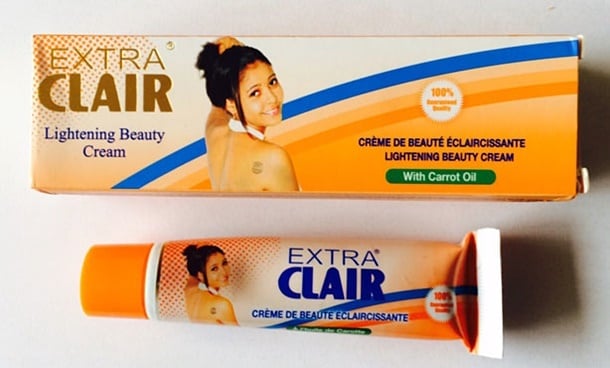People have been cautioned to avoid buying skin products containing harmful ingredients, which are being sold in Cape Town.
This warning came from Professor Nonhlanhla Khumalo, head of dermatology at the University of Cape Town and Groote Schuur Hospital.
Read: What to eat for a healthier skin
A study revealed an alarming trend in the composition of internationally manufactured skin-lightening products sold in Cape Town.
The 2013 study, which set out to investigate active ingredients and countries of origin of popular skin-lightening products available in Cape Town, was published recently in Clinical and Experimental Dermatology.
Khumalo told Health24 that a team clinicians from Groote Schuur Hospital and a multidisciplinary team of academic scientists from the University of Cape Town were motivated to conduct the research after seeing patients with irreversibly damaged skin from skin lightening products.
27 of the 29 products tested in the study were purchased from informal vendors, and only 2 were purchased over the counter from a pharmacy. 22 of the 27 from informal vendors contained illegal ingredients.
Caption: Extra Clair Lightening Cream is one of the products tested for harmful products being sold in Cape Town (Image: Supplied)
“Not only did almost 80% (79.5%) of the 29 products tested contain illegal or banned ingredients, we discovered that many products combined more than one illegal ingredient,” said Khumalo.
The study suggests that potent and ultra-potent topical steroids in combination with mercury have become the leading ingredients in skin-lightening products.
Most (76.9%) of the 13 products containing steroids were combined with either mercury or hydroquinone or both.
Read: 5 steps to blemish-free healthy skin
She pointed out that a third of the tested products originate from Europe.
“The top 3 countries of origin of the tested products were: Italy (6), India (5) and Democratic Republic of Congo (5) which raises questions about whether South Africa has become a dumping ground for illegal cosmetics,” said Khumalo.
She called for improved international law enforcement and random testing to encourage industry compliance and help protect customers.
Khumalo, who heads the first Hair and Skin Research Laboratory (HSR Lab) locally and internationally, focusing on comprehensive hair testing and safety in cosmetic formulation, said she is not aware of any safe skin lightening products on the market in the country.
"[It is] best to avoid purchasing skin lightening products," she suggested.
A list of some of the products tested:
Extra Clair Lightening Cream
Beneks'Fashion Fair Plus Gel
Skin Light Spotless Cream
Anti-spot Soap
Extra Clair Huile Eclaircissante
Princess Medicated Beauty Cream
Top Complexion Cream
Betasol Lotion
Tenovate Cream
Miki Skin Lightening Cream
Betasol
Esapharma Movate Cream
Epiderm Creme
Lemonvate Cream
Skin Light
Caro Light
G&G Teint Uniforme
Rico Complexion Cream
Peau Claire Creme de Beaute Traitante
Facial Fade Lightening Cream
Cuticura Antiseptic Ointment
Motivate Complexion Lotion
Last month, skin lightening creams were among more than R200,000's worth of unlicensed pharmaceutical products that were confiscated by the Hawks in the Durban CBD.
Health24's skin expert Dr Suretha Kannenberg explained what the dangers are of using skin products containing hydroquinone, mercury and steroids.
"The hydroquinone molecule forms a compound with the pigment in the skin and forms something comparable to a dark brown or black tattoo." This is permanent and not amenable to treatment, she said.
When mercury is applied to the skin, it gets absorbed into the blood stream and leads to chronic mercury poisoning.
"This is characterised by brain and nervous system involvement and renal failure. It also causes slate gray discoloration of the skin to which it is applied," said Kannenberg.
Referring to steroids (cortisone) creams, she said the more potent cortisone creams will lead to much more dramatic effects on the skin and systemically.
"Topical cortisone application may lead to thinning of the skin and dilated superficial blood vessels. This leads to a very red complexion. It may also lead to steroid-induced rosacea characterised by intense inflammation of the skin, with pimples and redness."
Kannenberg said the cortisone is also absorbed into the blood stream, especially with the stronger ones, and may lead to suppression of the body's own cortisone production.
"This in turn leads to adrenal insufficiency which may be life threatening. Long term cortisone exposure may also lead to the development of diabetes and osteoporosis."
Also read:




 Publications
Publications
 Partners
Partners











